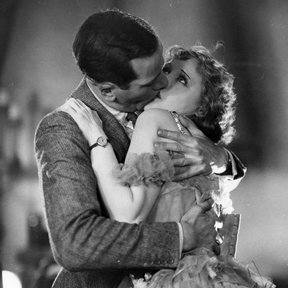
THE TWENTY-FOOT KISS
|
“Body of Thomas Smythe, actor. Clothed in street attire. Valuables carried intact. Nothing to indicate robbery. No external injuries. The skin livid and the muscles a bit contracted. “Results of post-mortem: “Chemist report, or analysis: “Cause of death: |
|
How Thomas Smythe was murdered. Second: A strong poison was mixed with the paste rouge and applied to the lips of Jewel Joseham. The poison did not affect her, due to the fact that she first applied to the lips a heavy coating of liquid rouge, and then the lip shellac. Third: In the final close-up, which was shot at about six-thirty, Jewel Joseham pressed her poisoned lips to those of Thomas Smythe. At seven-fifteen Thomas Smythe was found dead in his dressing room. After the kissing episode was over (this is supposed) he licked his tongue the remaining particles of the rouge from his lips unknowingly. Fourth: A make-up cloth was found in Jewel Joseham’s dressing room, with the smeared remains of the rouge. This was taken to a chemist to be analyzed. Fifth: May it be noted that Jewel Joseham departed for her dressing room before the final close-up, with the excuse to rouge her lips. She returned within five minutes with her lips heavily rouged. Sixth: The chemist’s analysis was that the smeared rouge on the make-up cloth contained a large amount of Hydrocyanic acid. Seventh: The coroner’s report says that Thomas Smythe died of Hydrocyanic acid. |


